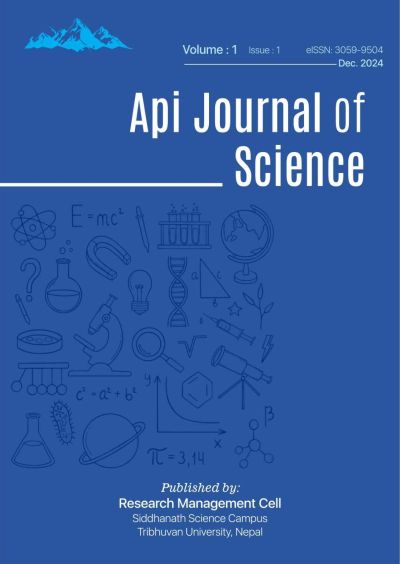Community Knowledge, Perception and Conservation Challenges of Smooth-coated Otter (Lutrogale perspicillata) in Shuklaphanta National Park, Nepal
DOI:
https://doi.org/10.3126/ajs.v1i1.75486Keywords:
Smooth-coated otter, buffer zones, community attitudes, conservation, challenges, wetland managementAbstract
Smooth-coated otters face increasing challenges from anthropogenic pressure, but research studies in human-dominated environments are sparse. This study aims to analyze residents' knowledge, attitudes, and practices about smooth-coated otters to guide sustainable conservation efforts and management decisions for implementing management interventions as well as policy intervention to safeguard the otter populations in the wetlands of Shuklaphanta National Park's buffer zone. Sixty-six locals from three user committees of Shuklaphanta National Park's buffer zone participated in semi-structured interviews to gain information on their livelihoods, resource consumption, awareness of otters, and conservation attitudes. Agriculture (78.7%) was the primary source of income, and a lack of information hampered conservation efforts. Fishing and livestock grazing are common activities along the river, but these practices, combined with pollution and riverbank construction, have resulted in habitat degradation and declining fish populations. Socioeconomic challenges, such as poor education levels, intensify these issues. Despite these challenges, 95% of respondents expressed strong support for otter conservation, highlighting awareness campaigns and habitat protection as their primary concerns. However, the community's inadequate understanding of otters' ecological importance and involvement in maintaining healthy river ecosystems demonstrates the need for targeted education. Human activities that affect river ecology emphasize the importance of long-term management strategies to conserve otter habitats and local resources. The major community support for otter protection provides a solid platform for conservation efforts.
Downloads
Downloads
Published
How to Cite
Issue
Section
License
Copyright (c) 2024 RMC, Siddhanath Science Campus

This work is licensed under a Creative Commons Attribution-NonCommercial 4.0 International License.
This license enables reusers to distribute, remix, adapt, and build upon the material in any medium or format for noncommercial purposes only, and only so long as attribution is given to the creator.




